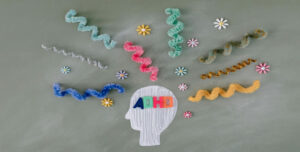A child’s brain is highly adaptable and capable of remarkable growth when given the right stimulation, nutrition, and environment.
Enhancing cognitive speed—such as processing information, quick thinking, and problem-solving—requires a combination of mental exercises, physical health, emotional well-being, and proper learning techniques. Below is a detailed guide on how to make a child’s brain faster and more efficient.

1. Nutrition for Brain Development
A well-nourished brain functions at its best. Key nutrients that enhance cognitive speed include:
Omega-3 Fatty Acids (found in fish, walnuts, flaxseeds) – Improve memory and learning.
Antioxidants (berries, dark chocolate, nuts) – Protect brain cells from damage.
Protein (eggs, lean meat, beans) – Essential for neurotransmitter production.
Complex Carbohydrates (whole grains, oats) – Provide steady energy for the brain.
Iron & Zinc (spinach, lentils, pumpkin seeds) – Support cognitive function.
Tip: Avoid excessive sugar and processed foods, as they can lead to energy crashes and reduced focus.
2. Mental Exercises to Boost Brain Speed
Engaging in brain-stimulating activities strengthens neural connections. Some effective exercises include:
A. Memory Games & Puzzles
Chess, Sudoku, and Crossword puzzles – Enhance logical thinking and problem-solving.
Memory matching games – Improve recall and concentration.
B. Speed-Based Learning Activities
Fast math drills (timed addition/subtraction/multiplication) – Sharpens quick thinking.
Speed reading practice – Helps the brain process information faster
Flashcards with rapid recall – Strengthens memory retrieval speed.
C. Brain-Training Apps & Games
Apps like Lumosity, Elevate, or CogniFit offer games designed to improve processing speed and attention.
3. Physical Activity & Brain Function
Exercise increases blood flow to the brain, improving cognitive function. Activities that help include:
Aerobic exercises (running, swimming, cycling) – Boost memory and learning.
Coordination-based activities (dancing, martial arts, skipping rope) – Enhance brain-body connection.
Yoga & mindfulness exercises – Improve focus and reduce stress.
4. Sleep & Brain Performance
A well-rested brain processes information faster. Ensure:
Ages 3-5: 10-13 hours of sleep
Ages 6-12: 9-12 hours of sleep
Teenagers: 8-10 hours of sleep
Tip: Establish a bedtime routine and limit screen time before sleep.
5. Emotional & Social Development
A happy, stress-free brain learns faster. Ways to support emotional intelligence:
Encourage social interactions (group play, team sports) – Enhances communication and quick thinking.
Teach mindfulness & deep breathing – Reduces anxiety, improving focus.
Positive reinforcement & praise – Boosts confidence and motivation.
6. Limit Screen Time & Digital Distractions
Excessive screen time (TV, video games, social media) can slow cognitive processing. Instead:
Encourage active play over passive entertainment.
Set screen time limits (e.g., 1-2 hours per day).
Promote reading books instead of excessive digital consumption.
7. Continuous Learning & Curiosity
Encourage questions – Helps children think critically.
Explore new hobbies (music, coding, art) – Stimulates different brain areas.
Travel & cultural exposure – Broadens thinking and adaptability.
Conclusion
A fast and efficient brain in children is developed through proper nutrition, mental exercises, physical activity, quality sleep, emotional well-being, and reduced screen time. By incorporating these strategies, parents and educators can help children enhance their cognitive speed, leading to better academic performance and problem-solving skills in life.
 Gistfox Your News Window To The World
Gistfox Your News Window To The World 




